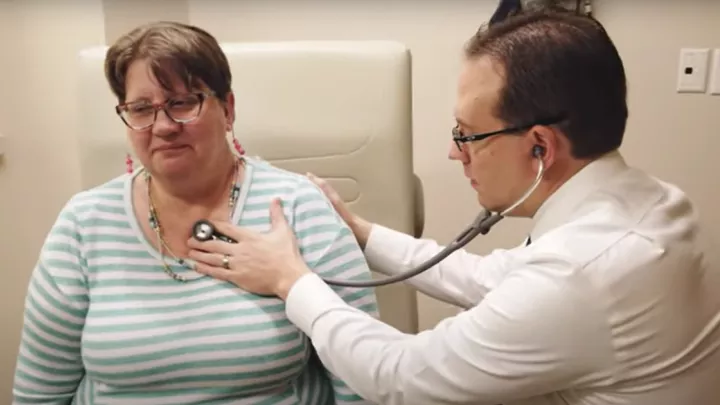Genetic Insights Project helps Nebraskans take charge of their health

Advancements in genetic research have paved the way for personalized medicine, and the Nebraska Medicine Genetic Insights Project is leading the charge.
This community health research initiative aims to provide participants with insightful genetic information that may significantly improve their care by detecting health risks early, preferably before disease onset. The project seeks to identify inherited conditions, such as:
• Hereditary breast and ovarian cancer syndrome.
• Lynch syndrome, which is associated with an increased risk of colorectal, ovarian and uterine cancers.
• Familial hypercholesterolemia, or a hereditary cause of very high cholesterol.

The statistics are sobering: 1 in 75 individuals is at increased genetic risk for at least one of these three serious genetic conditions. The Genetic Insights Project offers participants the opportunity to undergo a single blood draw, which will be used for this comprehensive genetic screening. The resulting information can potentially improve outcomes through early intervention and personalized care.
“It’s important to find out if you are at risk,” says Douglas Stoller, MD, PhD, an advanced heart failure and heart transplant cardiologist and the trial’s principal investigator. “It is very impactful information that can inform how you manage your care going forward.”
A large-scale endeavor
The Genetic Insights Project aims to enroll 100,000 participants over the next four years, making it the largest population health program in Nebraska. This will help to better understand how DNA may affect health for the entire community, which we hope will lead to protecting more people from inherited diseases for years to come.
To achieve this goal, the Genetic Insights Project has partnered with Helix. The nationally renowned organization specializes in population health and genomics. Our partnership with Helix, including offering clinical genetic testing, allows for future clinical testing to be conducted without the need for a new sample. This means patients may have the opportunity to learn about their health throughout their lifetime through a simpler testing process.
“After patients have undergone genetic sequencing, when we are studying treatments in the future, we can just search for past participants who would benefit from the potential new therapy and reach out to those patients to see if they are interested in participating in new studies,” Dr. Stoller says.
News you can use
While some may fear receiving “bad news” from a genetic test, learning more about their inherited conditions and risks can be empowering. It allows for early intervention, precision care and the opportunity to be among the first to benefit from future treatments.
“This information will let people make proactive decisions about their own health,” says Kyle Skiermont, PharmD, senior vice president of operations. “This will potentially delay, reduce or even prevent these things from happening later in life. We’ll also be able to better understand and treat conditions affecting the entire population of the state.”







